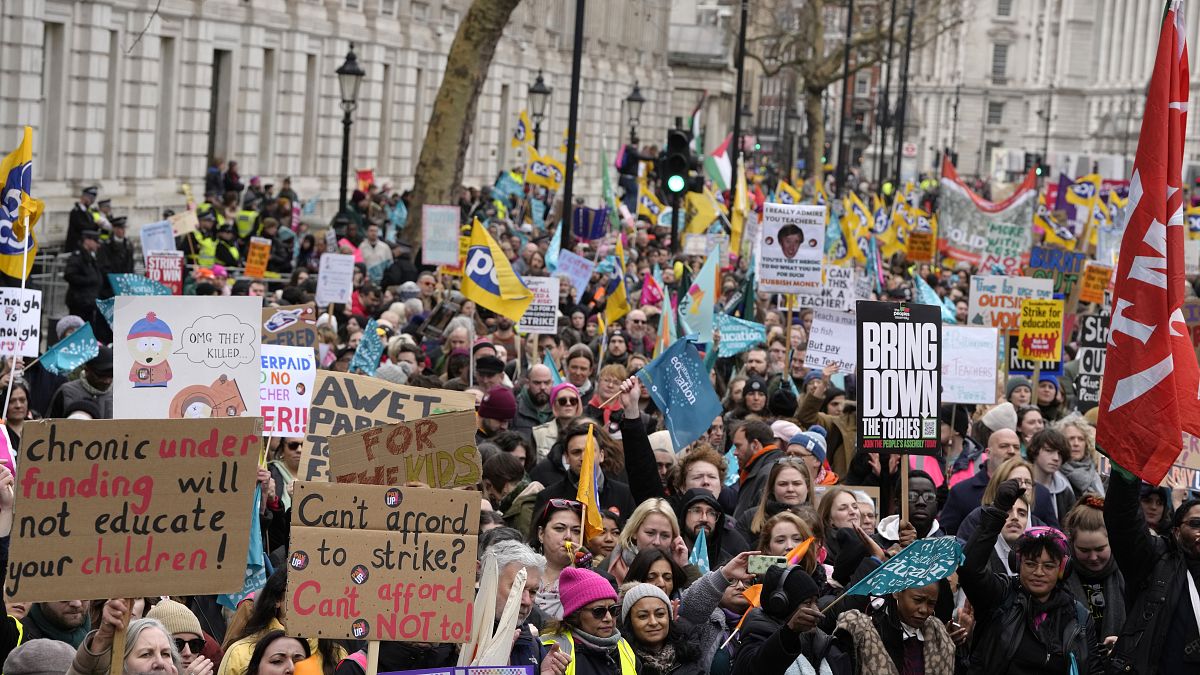Thousands take to the streets in London as half a million teachers and workers strike throughout Britain, calling for higher wages in the largest walkout in more than a decade.
Half a million workers went on strike in Britain on Wednesday, calling for higher wages in the largest walkout in more than a decade. The industrial action closed schools and severely disrupted transport.
Europe is battling a cost-of-living crisis and the latest strikes come a day after more than 1.27 million took to the streets in France, upping pressure on the French government over pension reform plans.
Britain's umbrella labour organisation the Trades Union Congress (TUC) called it the "biggest day of strike action since 2011". Teachers and train drivers were among the latest groups to act, as well as border force workers at UK air and seaports.
"We are striking because for the past 10 years we have effectively had a pay cut," Graham, a job centre worker and union representative said. He preferred not to give his last name.
"Some of our members, even though they are working, still have to make visits to food banks."
"Not only are wages not keeping up, but things like fares, council tax and rents are going up. Anything we get is eaten away."
Britain has witnessed months of strikes by tens of thousands of workers - including postal staff, lawyers, nurses and employees in the retail sector - as UK inflation raced above 11 per cent, the highest level in more than 40 years.
No 'magic wand'
"Nothing would give me more pleasure than to wave a magic wand and have all of you paid lots more," British Prime Minister Rishi Sunak told public health workers on Monday.
"An important part of us getting a grip of inflation and halving it is making sure the government's responsible with its borrowing."
The latest official data shows 1.6 million working days were lost from June-November last year because of strikes. It's the highest six-month total in more than three decades, according to the Office for National Statistics (ONS).
A total of 467,000 working days were lost to walkouts in November alone, the highest level since 2011, the ONS added.
Alongside the strikes, unions are also staging rallies across the country against the government's plans to legislate against public sector strike action.
TUC general secretary Paul Nowak said the nationwide protests would insist "the right to strike is a fundamental British liberty".
Sunak has introduced a draft law requiring some frontline workers to maintain a minimum level of service during walkouts.
The prime minister has defended the plans as "reasonable" and in line with other European countries.
_For more watch Euronews' report in the video above. _
